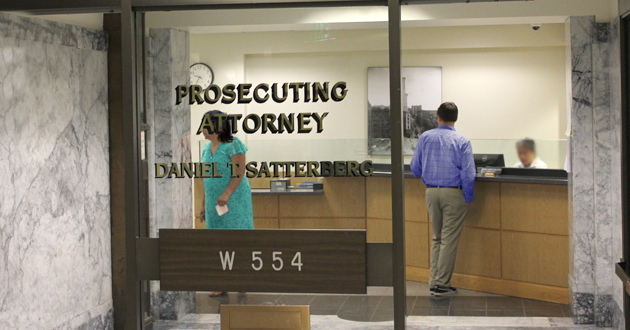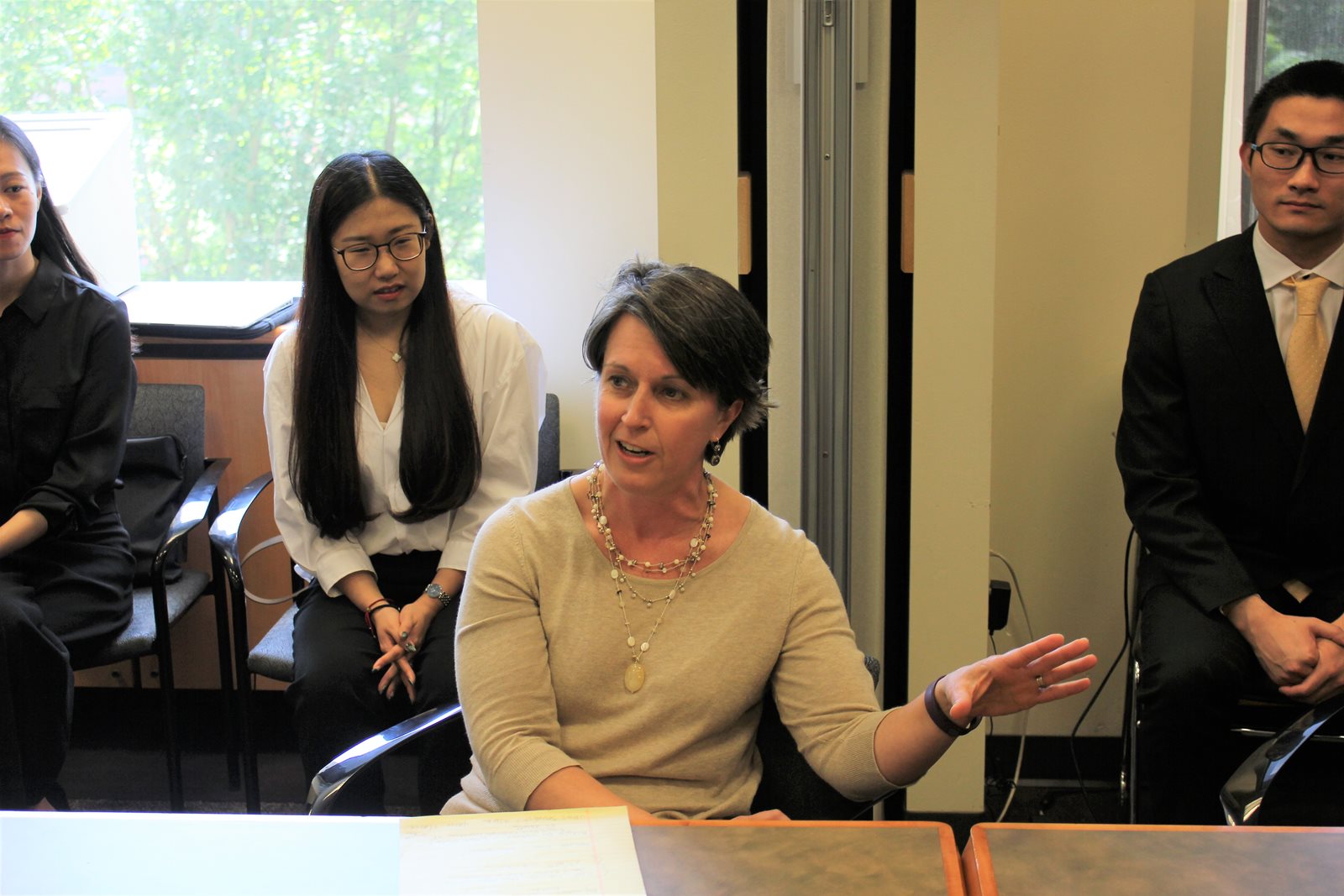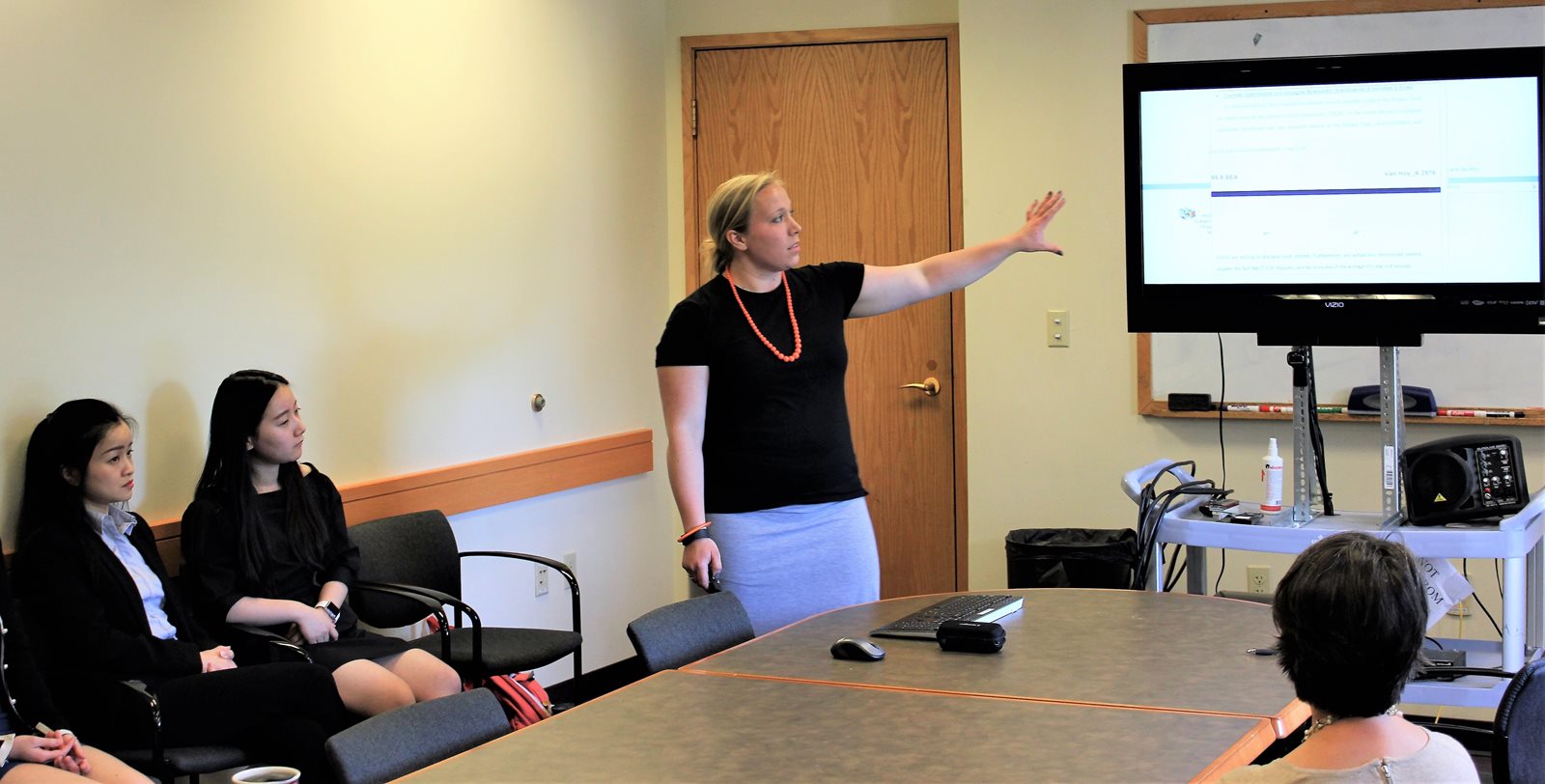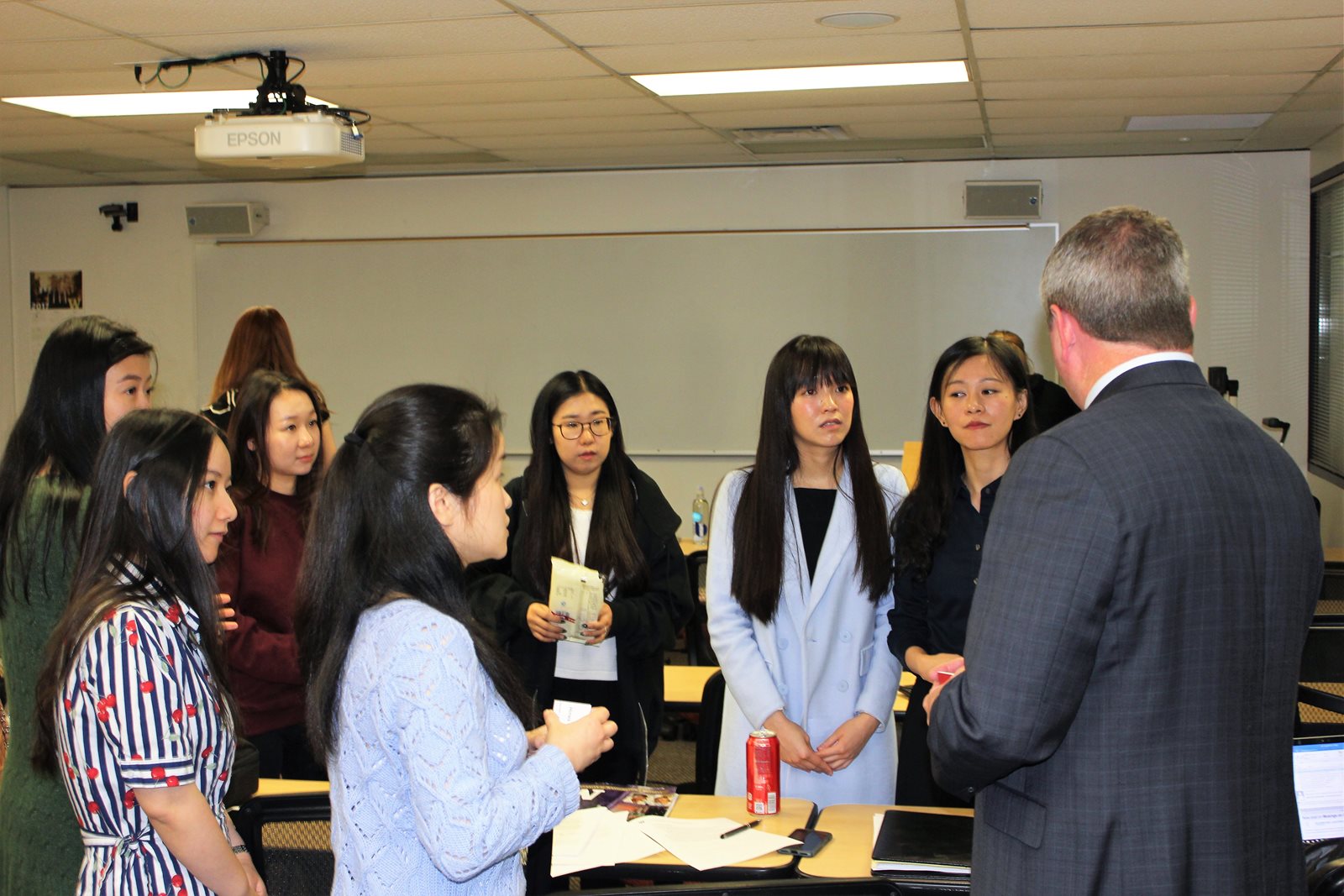By Douglas Esser
The case: A widow inherits properties worth more than $1 million. She has dementia and is soon unable to care for herself. But with her late husband’s estate, Social Security and retired teacher benefits, she should be well cared for. She has a son and a daughter who has power of attorney. Four years later, the widow is destitute. Her living facility and health care bills go unpaid. She’s a ward of the state, unaware of what’s happening. Where did her money go?

The situation: King County prosecutors have seen enough to charge the daughter with theft, but the economic crimes division faces hundreds of cases – some far more complicated. For all of them, it has one financial analyst. Prosecutors turn to the forensic accounting class at the University of Washington Bothell.

Over spring quarter, more than a dozen students in the Master of Science in accounting program looked into the case of the vulnerable widow. They found more evidence that prosecutors may use to put the daughter and son in prison.
The class: Forensics – finding criminal evidence – is a signature program for the master’s in accounting students at UW Bothell, says Associate Professor Rajib Doogar, who teaches the course, above. Professor P. K. Sen initiated the contact with the prosecutor’s office and the Association of Certified Fraud Examiners in 2014 when he helped develop the master’s program.
The students register as volunteers with the prosecutor’s office and undergo a background check. Forensic accounting classes in 2015 and 2016 helped convict a Little League treasurer who took team funds and a contractor who defrauded an elderly client by repeatedly persuading her she had forgotten to give him a check.
The investigation: Doogar’s team presented findings in the latest case June 5 at the King County Courthouse in Seattle. They met in a conference room with four staff members, including Senior Deputy Prosecutor Amanda Froh, left, who is handling this case.

Students reported the daughter and son have been spending their mother’s money on things that have nothing to do with her care, such as airplane fare, clothing and $150 haircuts. The students also found the son has taken money in various ways, including through a business that may have been set up for money laundering.
The approach: Doogar encourages his students to develop a case through dispassionate analysis but deliver it with a passionate presentation. As accountants, “accuracy, precision, representational faithfulness – these are some of the buzzwords we live and die by,” Doogar says. Be careful not to jump to conclusions. Talk about the “subject” rather than the “suspect.” Photo: Emme Warsinske, left, presents part of the case to prosecutors.

At the same time, it’s the emotion that brings the case to life – a family drama of deceit. It’s storytelling that can persuade a jury.
“Show the evidence in such a way the defendant crumbles. Bury them under the footprints they left behind.” he says.
The big picture: It’s this deep dive into a family’s finances that takes the forensic accountants into the “why” and “so what” of accounting, says Doogar. It links a class project to overarching social values.
“The technical stuff is a means to an end,” says Doogar. “It’s not about the numbers.”
Students begin to realize what accounting really means, Doogar says. “Without accountability, there can’t be trust. Without trust, you can’t have society.”
The broader vision is intentional. The UW Bothell master’s in accounting is for life after the CPA exam, Doogar says. It’s for people who want to rise to the highest level of a business.
The perfect partner: Doogar has an ideal forensics co-instructor in Ken Hines, far left with Froh and Doogar, a former special agent in charge of Internal Revenue Service criminal investigations in the Pacific Northwest. At one time in his 24-year IRS career, he also served as the agency’s director of operations, overseeing 4,000 staff members worldwide. Retired, but still consulting as a certified fraud examiner, Hines took the forensics accounting class and then returned as a volunteer professional mentor.

Hines compares forensic accounting to putting a jigsaw puzzle together without a picture. And, giving students a real case gives them a sense of urgency.
“You see that in their work. You see the passion, the commitment to doing something,” Hines says.
Outside of law enforcement, businesses need compliance officers or people to help with litigation, Hines says.
The student experience: Some students in the forensic accounting class already are working accountants, coming back to school for a master’s. As Doogar organizes the class into teams, the working accountants pick up management experience as team leaders. Less experienced students have the opportunity to work with professionals.

Team leader Rochelle McElroy says forensics was her favorite class. It helped her project management and presentation skills, and she really enjoyed being an investigator.
“There’s a lot more critical thinking. You’re using more of your own thought. It’s really fun and engaging,” says McElroy, an accounting manager at an eastside holding company for a hotel chain.
The prosecution: It will be some time before the case of the vulnerable widow goes to court. For the prosecutors, the student work was a “huge benefit,” said Froh.
“They were able to drill down on the details we honestly haven’t had time to do, and they uncovered information we weren’t aware of at this point in the prosecution,” Froh said.
Froh hopes to continue the collaboration with UW Bothell.
“It’s actually a really fun aspect of this work, to see their enthusiasm and learn about their discoveries. It’s really exciting for me, and it’s exciting for them."

Front, seated, left to right: Tannaz Fatemieh, Emme Warsinske, Kenneth Hines, Rochelle McElroy, Lili Qing. Back, left to right: Wanrong Li, Xiaoli Guo, Yajuan Wang, Xian Zhou, Shuyang Wang, Rajib Doogar, Shao-Chieh Hu, Shuting Shao, Yiya You, Fahad Alhazmi, Sam Wang.



